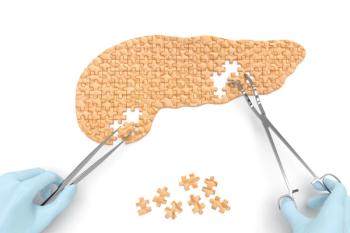
Bladder Cancer Indication for Tecentriq Withdrawn
A confirmatory trial of Tecentriq in urothelial carcinoma failed to meet the co-primary endpoint of overall survival.
Genentech, a member of the Roche Group, is voluntarily
Genentech made this decision to withdraw this indictaion following consultation with the FDA after the phase 3 IMvigor130 trial did not meet the co-primary endpoint of overall survival (OS) for Tecentriq plus chemotherapy compared with chemotherapy alone. These data will be presented at an upcoming medical meeting. IMvigor130 was the designated to be the postmarketing trial to convert the accelerated approval to regular approval.
An estimated 81,000 cases of bladder cancer will be diagnosed in the United States in 2022. Urothelial carcinoma, which develops in the cells of the bladder lining, is the most common type of bladder cancer, accounting for about 90% of all cases. In total, 30% of cases are considered advanced based on muscle-invasive or metastatic disease.
“There is a considerable unmet need for effective and tolerable treatments for people living with advanced bladder cancer and so we regret that the IMvigor130 trial did not cross the statistical threshold for overall survival,” Levi Garraway, M.D., Ph.D., chief medical officer and head of Global Product Development, said in a press release.
Tecentriq is a monoclonal antibody designed to bind with a protein called PD-L1. It is currently approved to treat both small- and non-small cell lung cancer, hepatocellular carcinoma, and melanoma.
Last year, Genentech withdrew the accelerated approval for Tecentriq in combination with chemotherapy (Celgene’s Abraxane, albumin-bound paclitaxel) for the treatment of adults with unresectable locally advanced or metastatic triple-negative breast cancer whose tumors express PD-L1.
Newsletter
Pharmacy practice is always changing. Stay ahead of the curve with the Drug Topics newsletter and get the latest drug information, industry trends, and patient care tips.























